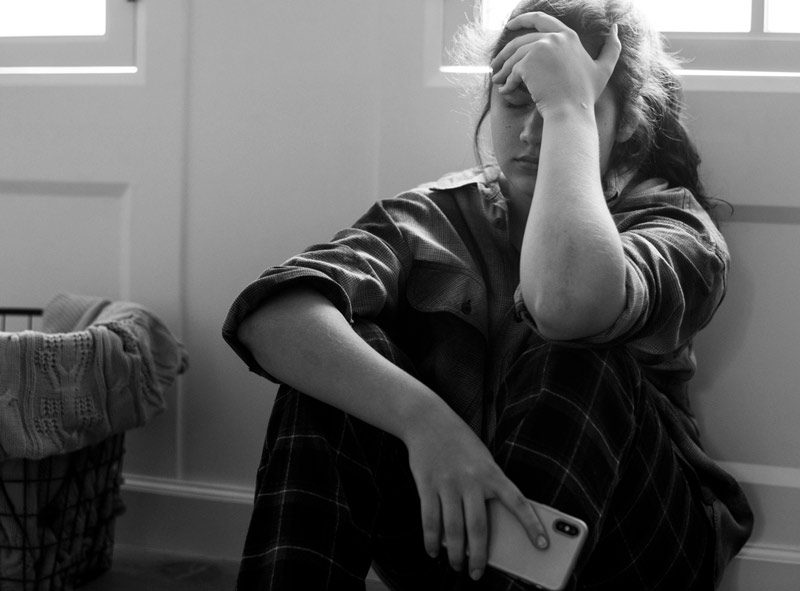Teens are suffering an increase in anxiety, depression, eating disorders, and suicidal ideation due to the isolation and loss of structure the pandemic created. Rates were high before the pandemic… now, they are higher.
The statistics reported by many credible peer-reviewed studies from around the spectrum of the mental health community are staggering. Teens are in crisis, and we need to do something about it, and whatever we do, we must do it with a sense of urgency.
This article is mainly targeted at the public and private school community. However, the urgency of this issue applies to all people and organizations that work with teens.
The Importance of a Sense of Urgency
“People who bring transformative change have courage, know how to reframe the problem, and have a sense of urgency.”
– Malcolm Gladwell
We need to have the courage to ask if what we are doing to help teens in a mental health crisis is effective, and if not, to reframe the problem and approach both these tasks with a sense of urgency.
One and Done Does Not Work
Having one assembly, one virtual presenter, making one announcement, and sending out one tweet is ineffective in dealing with the teen mental health crisis facing us. The teen brain works differently from ours. Due to their developing executive function, one month is like a year to them, while for grown adults, time flashes past, and one month passes in a day. Because their prefrontal cortex is not fully developed, teens process time and memory on a short-term scale. To reflect this, mental health messaging needs to be frequent and continuous.
Your efforts do not need to take up instructional time. A once-a-week tweet with a link to the school helpline or the counselor’s webpage with support numbers and information, a virtual assembly with a mental health speaker twice a year, signage with the designated school phone/text number placed throughout the school campus will get the message through.
The effort needs to be sustained and frequent and happening concurrently. For example, the depressed girl who is having unwanted thoughts of hurting herself walks past the poster that encourages her to reach out to the guidance department on Monday. She gets a tweet from the school that contains contact information and encouragement to “reach out if you’re hurting” on Wednesday and begins to be aware there may be options. On Friday, her basketball coach states, “We love you and are here for you in any way if you need us.” It’s not a lengthy or very eloquent presentation, but it registers in her turbulent thoughts. The following Monday, her health teacher shows a short but powerful video on the importance of asking for help and how that will lead to getting a support team. There is not much discussion of the video, and the class moves on to a lesson on a different topic, but it’s one more touch. At next Wednesday’s practice, she tells her coach just enough for the coach to be alarmed and contact the guidance office. Guidance intervenes, does a quick analysis of the girl’s situation, and puts a support team in place. This is the power in continuity and frequency of messaging, especially when it comes to mental health. We need to reframe what we are doing.
As a Person with OCD and Bipolar Disorder, I Get It
Having obsessive-compulsive disorder (OCD) and bipolar disorder, and suffering panic attacks and other symptoms, I assure you that a coherent long-term memory of a single event or strategy from the beginning of the school year will not be retained. The very nature of a mental health crisis makes rational thought very hard to obtain.
It amazes me when administrators tell me that students suffering from a mental health event will remember an announcement in the PTA newsletter or a beat-up poster that has hung over the water fountain in the cafeteria for years. It baffles me when educators tell me that the effort they conducted to combat teen suicide in September will be retained by a boy sitting in a bathroom stall on the third floor about to cut himself in April. It amazes me and, admittedly, makes me angry. When one considers how the teen brain works, addressing a topic with the students once a year is not impactful.
Often, schools only address teen mental health and suicide prevention during September when World Suicide Prevention Day occurs and October when Mental Health Awareness Week and Red Ribbon Week take place. The messaging put out in September is most likely not going to be retained by the student suffering a mental health crisis in early June. This is another point of frustration – many schools only address mental health issues within these two months – as if these are the only two months when teens are at risk of hurting themselves. Teen suicide rates are highest in the spring, another disconnect between what we believe and what is actually happening. It’s time to reframe what we are doing.
It’s January – Let’s Start Off Strong
The students are back in school. January is a time of renewal, new directions, and new goals for your school or organization. This is a great time to launch a new effort to reach students personally and more frequently with your positive mental health messaging. Develop strategies that do not take up instructional time and are targeted, frequent, and continuous. Reframe the problem. It takes courage, but it will be well worth it and life-changing.
About the Author: Keith Deltano is an award-winning public educator, parent coach, and internationally touring educational speaker. He is the creator of a character education video curriculum and is also a mental health speaker. www.Dontbullyonline.com
The opinions and views expressed in any guest blog post do not necessarily reflect those of www.rtor.org or its sponsor, Laurel House, Inc. The author and www.rtor.org have no affiliations with any products or services mentioned in the article or linked to therein. Guest Authors may have affiliations to products mentioned or linked to in their author bios.
Recommended for You
- Why Eating Disorders in Men Are Often Missed - July 3, 2025
- No More Silence: The Opioid Epidemic’s Alarming Impact on Women - June 30, 2025
- The Hidden Impact of Repressed Memories on Mental Health and How to Heal - June 26, 2025





